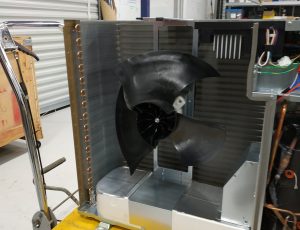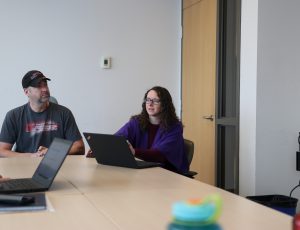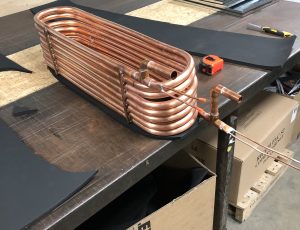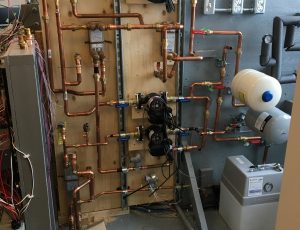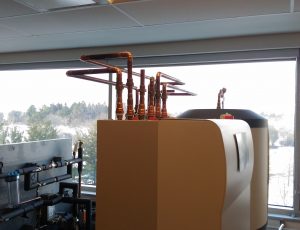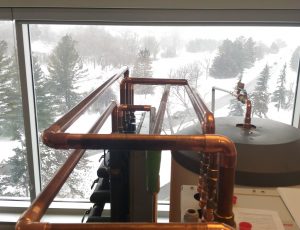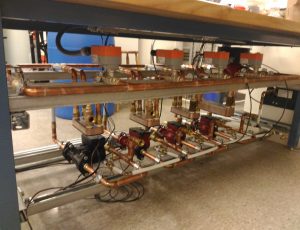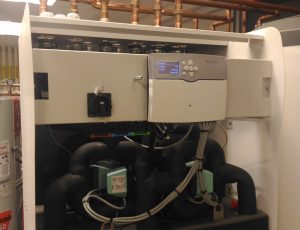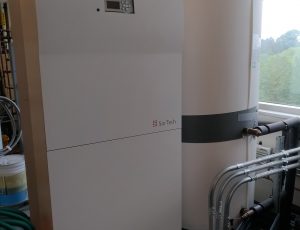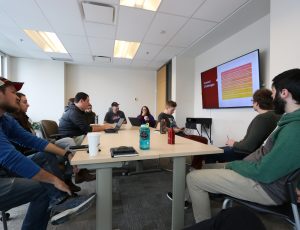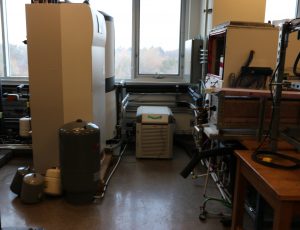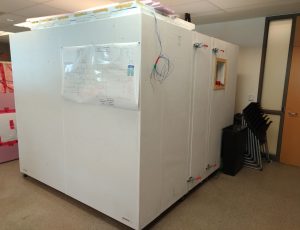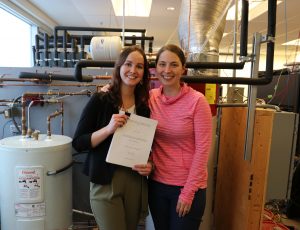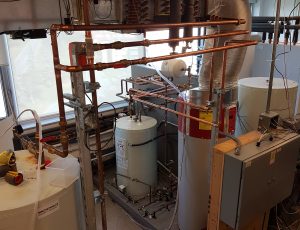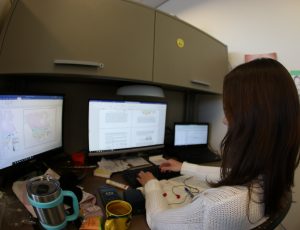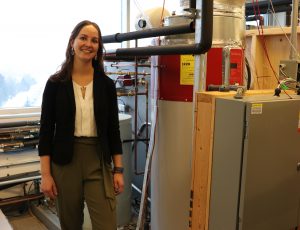Current Projects:
The SESL team is developing innovative approaches to solar integration, energy use and efficiency in both residential and commercial settings. Current areas of research at the SESL include thermal storage, combined space and water heating systems, solar cooling systems, and advanced building development. Many of SESL’s projects build on existing and new partnerships from academia, government and industry.
These projects tackle all facets of solar energy technology, often supporting solar energy acceleration initiatives brought on by governments.
Additional Areas of Interest:
- Cooling devices powered by solar power
- A thermo-chemical process allowing for cooling to be generated from the presence of hot water in Solar Power cooling devices
- Thermal storage used to offset peak electricity consumption
- New approaches to efficiently using solar energy
- Residential solar integration
The unique background of the students in the lab has allowed the SESL team to create tangible solutions to burgeoning issues facing energy consumption and efficiency.
Retrofitted Trans-critical CO2 Heat Pump for Domestic Water and Space Heating and Space Cooling:
In order to move away from traditional refrigerants, testing must be done to learn about the properties of CO2 as a natural refrigerant. Through the creation of a numerical model, researcher Kayla Lewry is aiming to study the efficiency of heat pumps with a water heating/cooling systems using natural refrigerants.
Determining Feasibility of Adsorption Cooling for Residential Applications in Canada:
The goal of the research conducted by Jordan McNally is to experimentally and theoretically determine if adsorption cooling monetarily and through carbon offsets makes sense to use in large scale residential applications.
Solar Assisted Heat Pump Configurations:
The goal of this project is to assess different existing technologies for their potential to provide ultra-efficient heating in a Canadian landscape. SESL team member Benjamin Beauchamp is working to determine which configuration of heat pump would provide the most promising results.
Solar Thermal Assisted Heat Pump Water Heaters:
The goal of the project is to decrease residential energy consumption and greenhouse gas emissions using a heat pump water heater (which uses a refrigeration cycle) in combination with a solar collector. Researcher Calene Treichel is determining the feasibility by getting rid of that space heating increase.
To see more projects from our Alumni, refer to the publications page.

